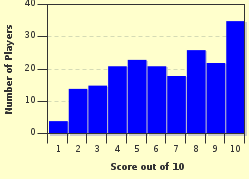Quiz Answer Key and Fun Facts
1. Whose original decision was it to bring a group of cohorts to lunch at The Algonquin Hotel?
2. Harold Ross, an experienced newspaperman, and an early Algonquin luncher, founded which famous and witty publication in New York in the 1920s?
3. Mrs Dorothy Parker had married Edwin Pond Parker, a rather stuffy Wall Street broker, in 1917. They divorced in 1920; she kept nothing but the name. Her vitriolic wit got her into trouble early. From which magazine was she fired in 1920?
4. Robert Benchley was originally a journalist and then Editor of Vanity Fair. In a brave show of solidarity, he resigned from Vanity Fair when Mrs. Parker was fired. There was talk that he was one of Dorothy's many lovers. Was he?
5. Robert E Sherwood, a regular at the Algonquin, wrote what was considered the first honest play about war, and recounted his experiences in World War I. It was presented as a comedic farce, set in the time of Hannibal and his elephants. What was the name of this play?
6. Who was the outrageous sometime addition to the Algonquin group? A lady that was reputed to be able to drink any man under the table, and gave Dorothy Parker a run for her money both in booze and affairs. She hailed from Alabama, and took New York by storm at the age of 15.
7. James Thurber was another dual player both at the Algonquin and the New Yorker. He had been a journalist in Ohio and upon moving to New York in 1926 was fortunate enough to meet E.B. White who brought him into the New Yorker fold.
From 1931, Thurber began drawing cartoons for the New Yorker. The drawing was primitive, but presented stylized characterizations of 'harried men and determined women'. His drawings of what particular animal became an 'American comedic institution', and so often represented his real feelings about humankind?
8. Edna Ferber described the Round Table Circle as "the Poison Squad", although she is not without her own barbs, once describing Alexander Woollcott as "...a New Jersey Nero who has mistaken his pinafore for a toga."
She was, however a prolific writer, winning her first Pulitzer Prize in 1925. For which book was this awarded?
9. George S. Kaufman, was known as "the Great Collaborator". Despite his gloomy, unsmiling face, he was a constant contributor to the Algonquin wit. With whom did he collaborate for his most successful and long-running play, 'You Can't Take It With You'?
10. Which probably brings us back to Dorothy Parker, who died in New York in 1967, having been very fragile for some time. What ultimately caused the demise of her career?
Source: Author
Englizzie
This quiz was reviewed by FunTrivia editor
Snowman before going online.
Any errors found in FunTrivia content are routinely corrected through our feedback system.

